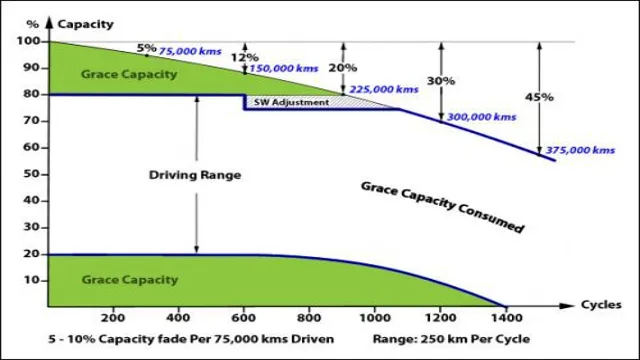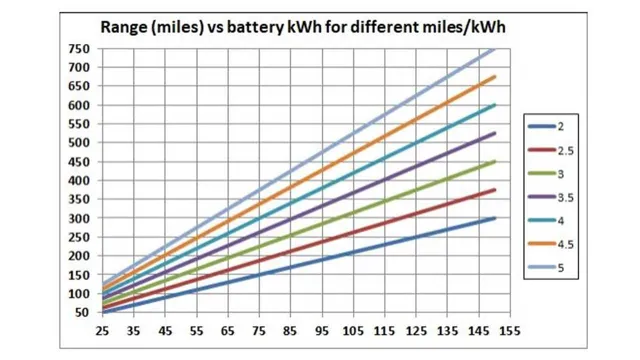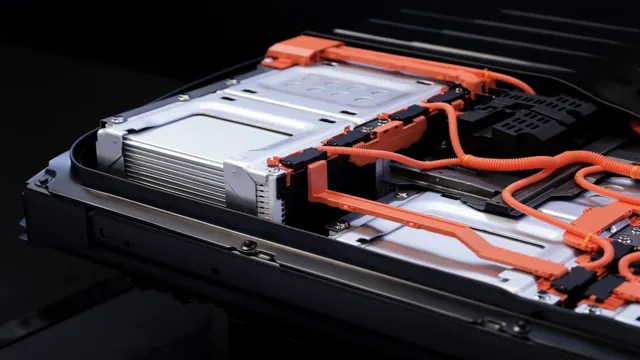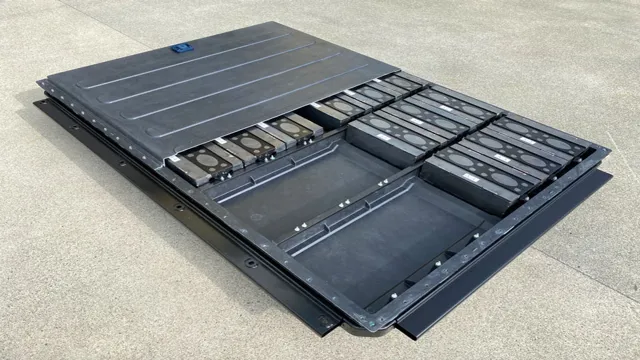Do Electric Car Batteries Come with a Warranty? Understanding Your Coverage Options
If you’re considering buying an electric car, one of the most crucial things you need to know about is the battery warranty coverage. A typical electric car battery can last between 8-10 years, but unforeseen circumstances can lead to premature battery failure. Hence, having a backup is always beneficial.
Electric car battery warranty coverage provides assurance to car owners that their batteries will be repaired or replaced in case of any defects or failures. But what does electric car battery warranty cover, and for how long? Is it limited to manufacturing defects, or can it also include accidental damage? How long is the period of warranty coverage? These are some of the common questions that car owners often ask. Understanding electric car battery warranty coverage will ultimately make your life easier if something goes wrong.
In this blog post, we will delve into the many questions of electric car battery warranty coverage, what it entails, and what you should consider before buying an electric car. From understanding coverage limitations, warranty duration, and the battery replacement process – we’ll cover it all. If you’re an electric car owner or planning on buying one, this post is a must-read for you.
Overview of Electric Car Batteries
Yes, electric car batteries are typically covered under warranty. However, the length and terms of the warranty will vary depending on the specific manufacturer and model of the electric car. Generally, most electric car batteries will come with a warranty that guarantees a certain level of performance and capacity for a certain number of years or miles.
It’s important to read and understand the details of the warranty to ensure that you are covered in case of any issues that may arise with your electric car battery. Some manufacturers may also offer extended warranties or additional coverage for an additional fee. It’s always a good idea to research and compare warranties when shopping for an electric car to ensure that you are getting the best possible coverage for your investment.
Lifespan and Efficiency of Electric Car Batteries
Electric car batteries are an integral component of electric vehicles and are responsible for powering the vehicle. They are rechargeable batteries that store energy in chemical form and convert it into electrical energy to drive the car’s motor. The batteries used in electric cars are lithium-ion batteries, which are similar to those used in smartphones, laptops, and other consumer electronics.
These batteries have a longer lifespan and higher energy density than traditional lead-acid batteries, making them more suitable for use in electric vehicles. The lifespan of electric car batteries depends on various factors such as temperature, usage, and charging patterns. Generally, the batteries can last anywhere from 8 to 12 years or longer, depending on these factors.
The efficiency of electric car batteries is also an important consideration. The efficiency of the batteries affects the range of the car and how often it needs to be charged. Higher battery efficiency means longer driving range and shorter charging times.
However, as the battery ages, its efficiency decreases, and the driving range decreases. Therefore, it is crucial to maintain and care for the batteries properly to ensure their longevity and efficiency.
Manufacturer’s Battery Warranties
If you’re thinking about purchasing an electric car, one of the questions you might have is whether or not the battery is covered under warranty. The good news is that most manufacturers do offer battery warranties on their electric vehicles. The length of the warranty can vary depending on the manufacturer, but it’s typically at least 8 years or 100,000 miles, whichever comes first.
This means that if your battery fails during the warranty period, you won’t have to pay for a replacement out of pocket. However, it’s important to note that there are typically some conditions that must be met in order to maintain the warranty coverage. For example, you may need to follow a specific maintenance schedule, or use the car in certain ways.
Be sure to read the warranty documentation carefully so that you fully understand what’s covered and what you need to do to keep the warranty in effect.
Types of Battery Warranties Offered
Manufacturer’s battery warranties are essential, as they provide peace of mind to the consumers. Typically, these warranties guarantee a certain amount of time or a certain number of cycles that the battery should be able to perform at a specified level. The manufacturer’s warranty usually covers any defects that arise from the manufacturing process, such as defective components or workmanship.
Some battery warranties may also guarantee that the battery will maintain a minimum level of capacity over time, even after repeated recharging cycles. It is essential to understand the specifics of the manufacturer’s battery warranty before making a purchase to ensure that you are aware of what is covered and for how long. By doing so, you can avoid any potential issues and be confident in your battery purchase.
Coverage of Battery Warranties
When it comes to buying an electric vehicle, it is essential to understand the battery warranty provided by the manufacturer. The battery warranty covers any defects in the battery, such as premature degradation, reduced range and charging capacity. Most manufacturers provide battery warranties for up to eight years or a certain number of miles driven, whichever comes first.
However, warranty policies can vary, so it is important to read the fine print carefully. It is also important to understand how the battery warranty is calculated, as some manufacturers only cover a portion of the battery’s cost, leaving the owner to pay for the remaining balance. Additionally, certain exclusions or limitations may apply to the warranty, so it is always a good idea to ask the manufacturer for a complete breakdown of the battery warranty and its coverage.
Ultimately, the battery warranty is a crucial aspect of owning an electric vehicle and can provide peace of mind for years to come.
Limitations and Exclusions of Battery Warranties
Manufacturer’s Battery Warranties When purchasing a new battery, it’s important to review the manufacturer’s warranty to understand what is covered and what limitations and exclusions may apply. Manufacturer’s battery warranties typically cover defects in materials and workmanship, but may not cover damage caused by misuse or improper installation. It’s important to follow the manufacturer’s instructions for proper use and maintenance of the battery to ensure that it stays in good working condition and to avoid voiding the warranty.
Additionally, some warranties may only cover the cost of the battery itself, and not the labor required for installation. Be sure to read the fine print of the warranty to understand what is included and excluded. Overall, a manufacturer’s warranty can provide peace of mind and protection for your investment, but it’s important to be aware of any limitations or exclusions that may apply.
Extended Battery Warranty Options
Are electric car batteries covered under warranty? Yes, typically all electric car batteries come with a warranty from the manufacturer as they are an essential part of the vehicle. The length and coverage of the warranty may vary depending on the automaker and the specific battery, but most electric car batteries are covered by a warranty that lasts from 8 to 10 years. However, some manufacturers offer extended battery warranty options as an additional service which can cover your battery for up to 15 years or 150,000 miles.
It’s always important to check the warranty of the electric car battery before purchasing a vehicle so that you can be fully aware of the coverage and any additional options available. If the battery fails within the warranty period, the manufacturer will usually replace or repair the battery at no cost to the owner. Overall, electric car batteries are an expensive part of the vehicle and having them covered under warranty can provide peace of mind for drivers.
Benefits of Extended Warranties
If you’re in the market for a new electronic device, it’s important to consider the benefits of extended warranties, especially when it comes to battery life. Extended battery warranty options provide peace of mind knowing that you’ll be covered in the event of unexpected battery failure or performance issues. With a warranty, you can rest assured that you won’t have to shell out extra funds for a replacement battery, which can be costly.
Plus, with today’s technology becoming more and more complex, batteries are often non-removable, making it difficult to replace them on your own. Extended warranties provide an easy solution to this problem, and can save you both time and money in the long run. So, if you’re investing in a new electronic device, consider purchasing an extended battery warranty to ensure that you are fully covered.
Cost of Extended Warranties
When it comes to purchasing extended warranties for electronic devices, many consumers often wonder whether it’s worth the extra cost. This is especially true when it comes to battery warranties, as these can be one of the most expensive options available. However, if you rely heavily on your device and cannot afford to have unexpected downtime, an extended battery warranty may be a good investment.
It’s important to research your options and compare the cost of repairing or replacing a battery without a warranty versus the cost of purchasing an extended warranty. Remember, the peace of mind that comes with knowing your device is protected can be priceless. So while an extended battery warranty may seem costly upfront, it could end up saving you both time and money in the long run.
Final Thoughts
If you’re considering buying an electric car, you might wonder whether the batteries are covered under warranty. The short answer is yes – in most cases, the battery will be covered under the vehicle’s warranty. However, it’s important to double-check before you purchase your vehicle, as different manufacturers and models may have different policies when it comes to battery coverage.
Additionally, the length of the warranty may vary – some manufacturers offer warranties of up to 8 years or 100,000 miles on their batteries, while others may offer only a few years of coverage. When it’s time to evaluate your warranty options, be sure to take into account the make and model of the vehicle, the length of the warranty, and any additional coverage options that may be available. That way, you can feel confident that you’ll have the protection you need to keep your electric car’s battery running smoothly for years to come.
Conclusion
In conclusion, you might be charged up to know that electric car batteries are indeed covered under warranty. So, don’t get revved up worrying about potential issues with your battery. Just sit back, relax, and let your electric vehicle take you on a smooth and stylish ride!”
FAQs
What is the typical warranty coverage for electric car batteries?
The warranty coverage for electric car batteries can vary depending on the manufacturer, but it is typically between 8-10 years or 100,000-150,000 miles.
Will a warranty cover a battery replacement for an electric car?
If the battery fails during the warranty period, the manufacturer will usually cover the cost of replacement. However, certain circumstances, such as damage from accidents or owner neglect, may not be covered.
Can an extended warranty be purchased for electric car batteries?
It depends on the manufacturer and the dealership. Some offer extended warranties specifically for the battery, while others may include it in a more comprehensive vehicle warranty package.
Does regular maintenance affect the battery warranty for electric cars?
Yes, regular maintenance as outlined in the vehicle manual is required for the battery warranty to remain valid. Failure to properly maintain the vehicle may result in the warranty being voided.





